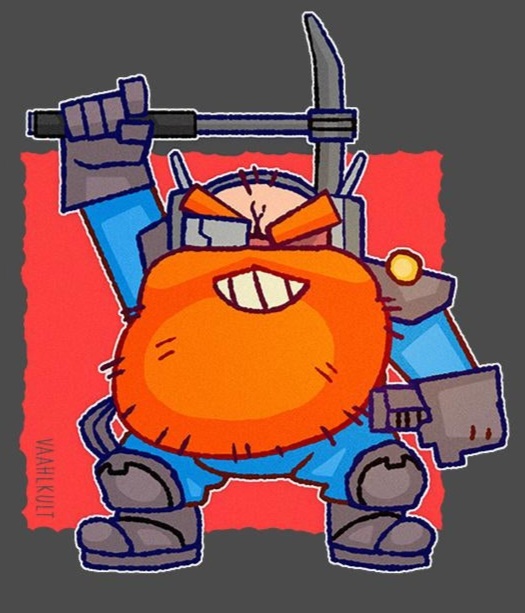Has there been changes to what games you choose to buy and play?
I remember the first time I came in contact with DLC, coincidentally it was my first Steam game: Supreme Commander 2.
My first thought was: “What the fuck is this? Why isn’t this in the game?”. Later on, when DLC were getting more substantial, my thoughts changed to; ”Are they just rebranding Expansion Packs?”.
As other people noted, I don’t care about cosmetics. Even for Dota 2, which I’ve put over a thousand hours in and have played it 10 years, I just sell them on the marketplace to fund my next summer sale. The only time I buy stuff is when I want to support the game’s development.
My gaming time is too limited to worry about battle passes and shit like that. I just wanna click heads and farm creeps.
Edit: the one thing that does bum me out though is that back before item shops and shit, skins and unlocks used to mean something. Like, you’d see some dude in your Halo 3 lobby with a dope-ass helmet and you knew that he earned that from getting a Killtacular with only deagle headshots. Now it’s just, dude’s level 150. He must’ve swiped for the ultimate edition, XP boosters, or has too much free time.
Paying once for a game was so nice. You pay and then you can finish the game at a your own pace. There are still games like this but more often now even if you pay someone is always trying to get another 2.99 or 9.99 from you. Before you could get a cool skin because you did something now you pay.
I take some satisfaction in always being the most boring character in a multiplayer lobby. In halo 3 I worked so hard for the samurai or ninja armour but now it feels like it isn’t part of the game at all.
Getting updates has been extremely nice as well though. There’s plenty of old games that had design issues or you wished something was a bit more fleshed out. Back then, you didn’t really expect much in the way of updates though. PC got some patches but it was mostly bugs. Console was totally stuck with what you got.
While I’m not a DLC person, I can’t deny it can be fun watching a game you play continue to evolve.
It pushed me straight back to uncompromising piracy, and a total refusal to give money for any reason unless the game is fully offline and on physical media.
I believe in piracy for “demo” purposes. If the studio “forgot” to provide an official demo, you as a consumer should take matters into your own hands and provide the ‘demo’. Delete it when you’ve played a ‘demo’s worth’, which did have a fairly industry standard meaning back in the day.
When I became willing to play this 1 older game that shall remain nameless, and pay for it, I went looking for a Game Of The Year edition to pay for or some such. For some reason, this particular game never released a comprehensive GOTY. They expected you to download a quite silly amount of expensive DLC for trivial features. Slightly more powerful items in a RPG, basically. Those items even had the effect of ruining the game balance, so I’m not convinced it was even a good idea to have the DLC. Yet they expected you to pay for it sight unseen.
This was all driven by some kind of big corporate trick or scumbagging. I think it was an EA published title. Because they were clearly being greedy with an older title, I said to hell with them. It is one of the only games I’ve played in its entirety, that I didn’t pay for, that wasn’t abandonware. If you’re gonna be like that and your price on goods is not reasonable, I don’t feel I have to cooperate with you.
Now that I know what’s going on with DLC games, and also the low level of quality that’s going to result when a publisher engages in such practices, I’m not likely to seek a ‘demo’ of such a game at all. I will probably retain my demo only, not pirating purity in that regard. But to the extent I’ve ever been impure, that once, it was directly driven by the DLC. I was like waaaat, srs, gtfo.
Dude we’re old af and don’t have time to finish the games themselves. We sure as shit don’t have time to play extra levels on top.
So have you come to embrace lets plays of games?
Lol hell no. I can’t figure out why my kids want to watch some stranger play a video game.
Who has time for that either lol
When I played World of Warcraft, you had no cosmetics. It was the monthly subscription and the odd expansion. Everything in the game was accessible if you were willing to put the time and effort into it. Some content was very long so you really had to pick what you wanted. Some people had special fishing gear, some people had a fancy mount, and others had fancy titles.
While some of that still remains, I find way too much is accessible with money in most games. There’s good and bad. You have games constantly push out new content, refreshing gameplay, and skins to pay for it. On the other hand, you have games that just try to milk their customers. I’d say 99% of mobile games are absolute disgraces.
The other facet is that I’m older now. I don’t have the absolute freedom that comes with being a child. If I can pay an extra dollar to progress a bit quicker, maybe that’s better for me? I don’t know.
Unfathomably annoying, especially when it comes to modding games. The amount of times I’ve had mods or settings break because of some update that added useless content that I don’t want is honestly disgusting. For the most part, I’ve stopped buying games near their release date because I’d rather buy the game when it’s more feature-complete. The DLC scenario has become an issue in that it effectively translates to, “You will not get the game’s content in it’s entirety upon purchase”, which is unthinkable in other scenarios.
Imagine going to a restaurant and paying the price of a meal just to be seated. If you want appetizers like chips and salsa, it costs $9.99 per bowl. Drinks (including water) are $5.99. Both for the appetizers and for the meal, you pay the waiter first, sides are $2.50 extra. After purchase, they’ll give you an estimated wait time for your food, which may be delayed for any reason or cancelled altogether, even though you’ve already paid for it. The food comes out but it’s not what you ordered, the meat is undercooked, the portions are significantly smaller than advertised, or it’s actually a different dish altogether. You attempt to complain to the waiter, wanting to get the food you promised. The waiter tells you “Thanks for the feedback!” and leaves, never to be seen again. You hear grumblings from others around you that they’re having the same problems. What they ordered is not what they got, or something hasn’t been made properly. One guy waited all evening before they finally delivered enough food, piece-by-piece, to make up the meal he ordered. Eventually, after enough people have complained, the waiter comes back and gives everyone silverware. Nothing changes about anyone’s meals, but you now have silverware (even though you likely already had some before).
You leave the restaurant, annoyed, with less money, and still hungry. You later find a social media post from the restaurant’s cook complaining that their customers are self-entitled and are “expecting too much”.TL;DR - Its like fast food, but without the “fast”.
… Or the “food”…No adjustment. I don’t play those games.
I’ve observed what I believe to be a fundamental shift over the design approach to games. Now this may just be my different views of the world as I grew up, but maybe there’s at least a kernel of truth.
DLC was originally a good thing because it added additional content to your favorite games, giving you more of what you love. Prior to DLC, we had something called Expansions which kind of served the same purpose (in a mostly offline capacity). Then, someone got the bright idea of changing things from a content-focused approach to a monetize-focused approach. Suddenly you started seeing content stripped from the game to be sold back to you at additional cost. This is where I see the industry start shifting to avoid risk and homogonizing their titles while stripping as much as is viable to monetize. Now you have microtransactions (MTX) instead of cheat codes, DLC restoring cut content instead of providing new content, special editions to give you back your physical goods, early access instead of demos, preorder bonuses to get you to buy before you try.
Now don’t get me wrong, there was always a desire driven by making money present in the industry. Most arcades were designed around brutal difficulty and unavoidable game overs to drain more quarters from you. Console games saw this take shape in the form of short-devepment licensed titles (or shovelware as it’s coloquially known). The brutal difficulty of early console games was more of a leftover from that arcade game design philosophy, but didn’t serve the same purpose here. However, there was a gradual shift from making money from making games to making games to make money as the industry grew.
I feel like the soul of video games development has been lost from all but the small indie developers who still do things for the love of it. The largest “triple A” publishers don’t give a damn about video games, video games development, gamers, or their own product so far as it provides a return on investment. People like Kotick would eagerly and uncaringly destroy the entire video game industry if it meant a way to profit. There’s no soul there.As for post-launch updates, it’s a complicated answer. Prior to updates, what you got was what you got, unless the publisher/developer designed to release an updated version. Since this was costly to do, it rarely happened, but it did happen on occasion; usually with games that had severe game-breaking bugs. Being able to patch a game after it released was, like DLC, both a good thing and a bad thing. Good in that it addressed bugs and made for a better overall product. Bad in that it allowed downgrading of a product, such as when a music licensed expired (See GTA). Additionally, I think that publishers/developers have become far too reliant on this function to push out bad products with the intent to fix it after launch. This is, in my opinion, fraud as they are selling consumers a known-defective product with the promise that they may fix it later. But, that’s not for me to decide legally speaking.
So to address the original intent of the question, I tend to stick with what I know and avoid big name publisher titles unless they aren’t riddled with soulless monetization. I also tend to wait for reviews rather than preorder so that I know I’m not buying defective trash. That’s how I cope.
Most of us don’t notice microtransactions because we don’t give a flying fuck about cosmetics and skins. It’s a self-correcting problem: stop buying them and they go away.
I wait for deep sales now. That usually comes with the downside that the game isn’t as hyped up or commonplace, but on the flipside, it’s been patched and surely someone on the internet has fixes to any issues that may arise.
I do buy into monetization sometimes, but I tend to budget it very tightly and only go for cheap skins, or novelty gacha characters.
The adjustment? What adjustment 🤣
That is to say, I basically just didn’t. Sometimes I’ll grab a DLC that adds something I particularly want but usually I play the game first and then it’s a waste because I don’t actually go back through to play the DLC stuff :| :-\ And microtransactions… ugh. So often they’re not micro, and never are they actually independent of the game itself when they have any mechanical effect. It’s never “Here’s the game, but if you wanna skip a bit you can pay for that” but rather “Here’s the game, slowed down by 30%. If you want that 30% back then pay up!” Gross. Fair cosmetics (that is, it’s still possible to play the dressup minigame without paying (/more) for it) to support an indie or free-to-play thing are fair, though, I think.
deleted by creator
I don’t care for how games are now. I’d rather Kentucky windage bugs than half the dev team monetizing nonsense.
depends on the DLC. some DLCs are like expansion packs. not a fan of microtransactions but love included updates like minecraft, terraria, satisfactory etc
I have never purchased a single microtransaction. I don’t see the appeal of having a green shirt, or paying to win (buying in-game currency that I can use to level up, etc.). The second one in particular just defeats the purpose of why I play games (to learn to get good at them and exercise my skill). Any game that prevents me from winning using skill alone is not even a “game” as I would define it.
DLC is different. These days I rarely buy games on release. I wait for the dust to settle with frothy g4mers complaining about review scores and woke characters, and for all the inevitable QoL patches etc. to roll through, and pick up the game later on at a steep discount. For a number of reasons, I only play single player games, so missing out on the initial influx of players doesn’t bother me, and I have a mammoth backlog anyway. If the base game was cheap and I enjoyed it, then I’ll think about getting DLC. My favourite game is Nioh 2, and the three expansions for that game are all very substantial. I paid $15 or something for the base game and then like $20 for the season pass later on.
I enjoy story DLCs. I was disappointed when GTA V didn’t do any.
I hear a lot of talk about micro transactions and shot, but I rarely see them in the game i play so I don’t really care about them at all. I played league of legends, but stopped 3 years ago. I never felt the need to buy anything in league, because it doesn’t affect gameplay. Now I mostly play single player games and at max there will be dlc that are almost always totally optional or sometimes there will be cosmetics you can buy that are also totally optional.
I would be very interested of hearing people who really hate micro transactions explain why they hate them so much. If it’s an online game were you paying gives you an advantage, that would be really shitty. But all micro transactions I see are just optional cosmetics that I can ignore.
I think it very much depends on the type of games you play. Some microtransactions or DLCs aren’t just cosmetic.
I don’t remember which game had mounts and extra inventory space as microtransactions, but they exist, and sure, they’re optional, but it still kinda sucks that a player has to either grind for hours for rare RNG loot or just shell out 20$ for something that would make the game run better.
Single-player games aren’t immune to this either. I still remember the fuck up that was Mass Effect 3’s Day 1 DLC. Bioware insisted the character on the DLC was optional but many, including myself, felt that a character who represented a race that has been at the core of the series was absolutely necessary, and that his removal from the base game was a simple act of greed. Especially since he was ready to be played at the onset.
Mtx tends to warp game design around them in one way or another. Oftentimes the shop experience and things you can buy see the most dev attention, to the detriment of actual gameplay. Another side effect is that things you’d normally find satisfaction in unlocking through gameplay are relegated to the store instead.
Only game I really hated micro transactions was diablo immortal. Felt like it had a good thing going if it wasnt for the pay2win aspect that was so expensive you had to be a borderline millionarie to even have a shot at the best gear.














